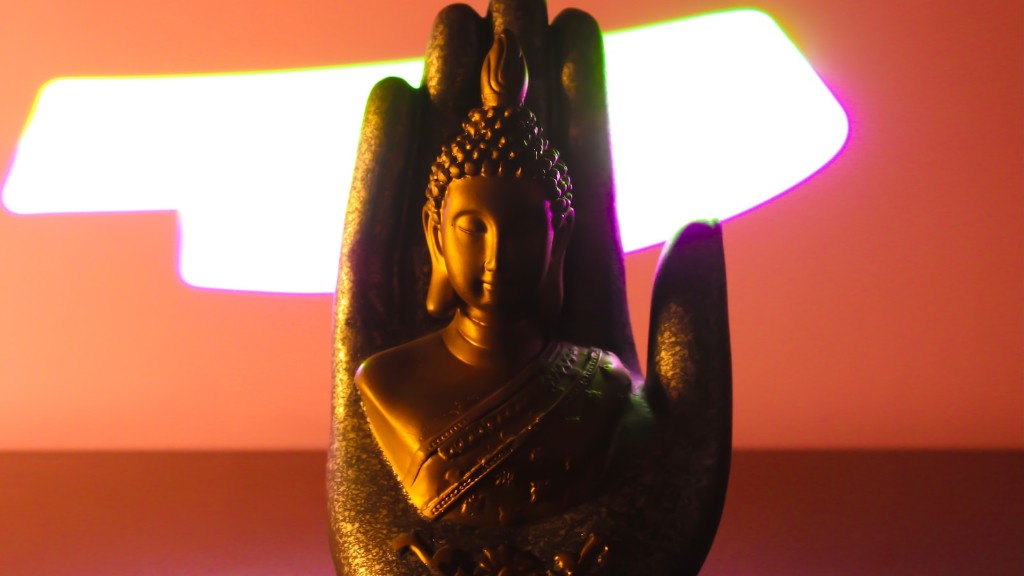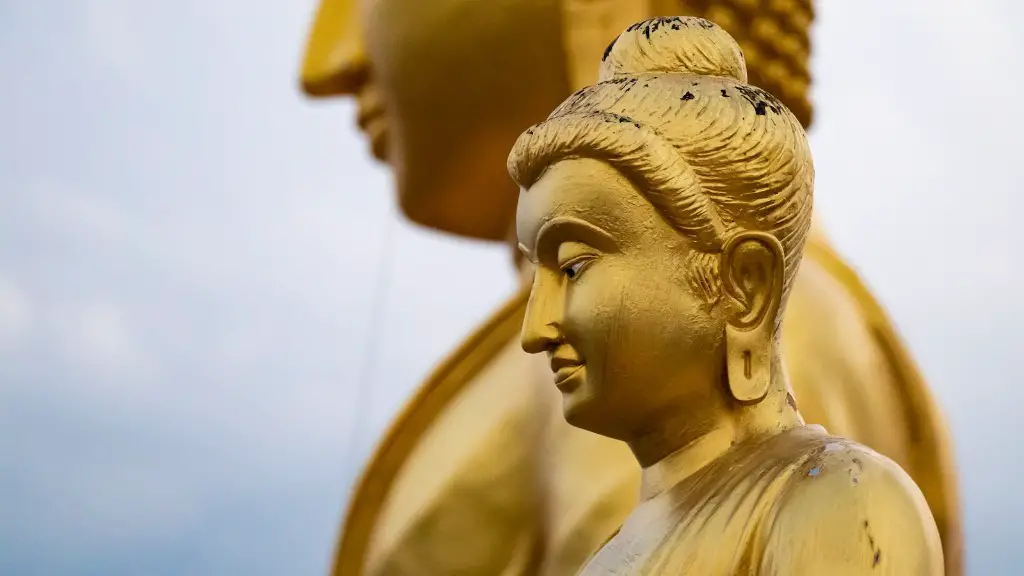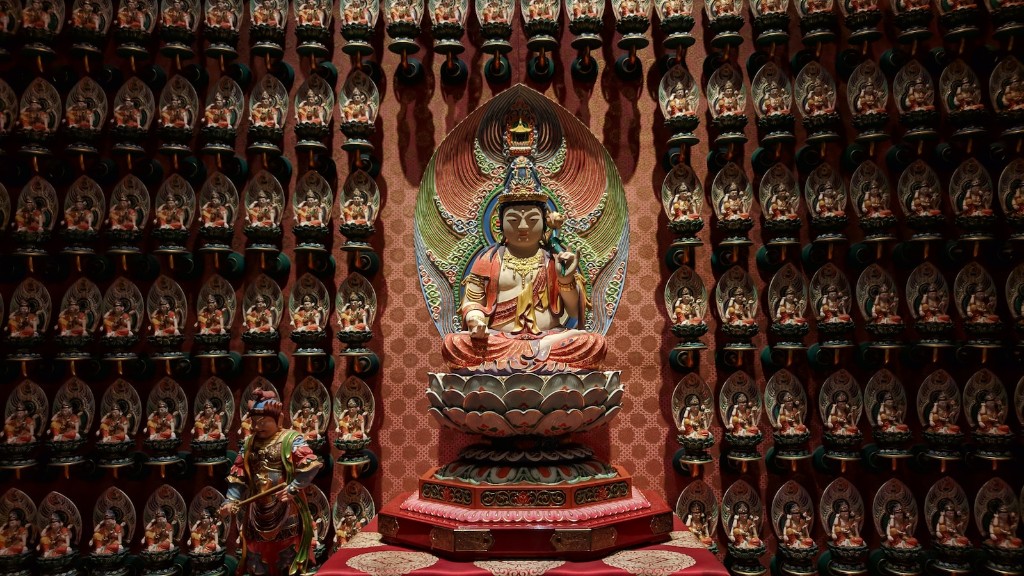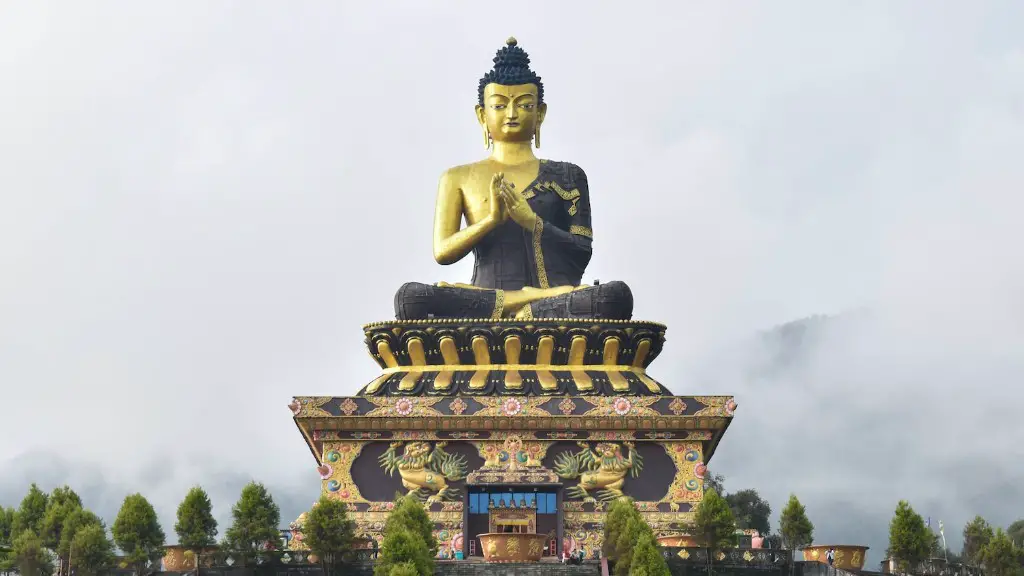Buddhism is a religion that was founded by Siddhartha Gautama in the 5th century BCE. Siddhartha was born a prince in Nepal, and he lived a life of luxury until he realized that all beings suffer. He then renounced his life of privilege to become a monk and to search for a way to end suffering. Siddhartha eventually attained Enlightenment, and he began teaching others what he had learned.
Buddhism teaches that all beings suffer because they are caught in the cycle of rebirth, or samsara. In order to end suffering, one must break free from this cycle. This can be accomplished by following the Eightfold Path, which is a set of guidelines for ethical and moral conduct. Buddha also taught that all beings have Buddha-nature, which is the potential to achieve Enlightenment.
The four Noble Truths are the central teachings of the Buddha and form the foundation of Buddhist thought. They are that life is suffering, that suffering is caused by attachment and desire, that suffering can be ended by letting go of attachment and desire, and that the path to the end of suffering is the Noble Eightfold Path.
What are 5 basic beliefs of Buddhism?
The Five Precepts are a set of guidelines for living a moral and ethical life. They are:
1. Refrain from taking life
2. Refrain from taking what is not given
3. Refrain from the misuse of the senses
4. Refrain from wrong speech
5. Refrain from intoxicants that cloud the mind.
These precepts are based on the principle of respect for all life. They are designed to help us live in harmony with others and to avoid causing suffering.
Buddhism is a religion based on the teachings of Siddhartha Gautama, who was born in Nepal in the 6th century BC. The main principles of Buddhism are karma, rebirth, and impermanence. Buddhism teaches that our actions have consequences in this life and in future lives, and that we can be reborn into different forms depending on our karma. It also teaches that everything is impermanent and that we should not attach ourselves to things because they will eventually change or end.
Do Buddhist believe in God
Buddhism is a tradition focused on spiritual liberation, not a theistic religion. The Buddha himself rejected the idea of a creator god, and Buddhist philosophers have even argued that belief in an eternal god is nothing but a distraction for humans seeking enlightenment.
Buddhism teaches that there is no permanent self or soul, but that there is continuity of consciousness, which is reborn after each physical death. This is what is meant by reincarnation. Each new life is determined by the actions, or karma, of the previous life.
What are Buddhist not allowed to do?
The precepts are guidelines for living a moral and ethical life according to Buddhist teachings. They are meant to help develop a mind and character that is focused on the path to enlightenment. The five precepts are: to abstain from killing living beings; to abstain from stealing; to abstain from sexual misconduct; to abstain from lying; and to abstain from intoxication.
Buddhism is a religion or philosophical tradition that was founded by Siddhartha Gautama in the 6th or 5th century BCE. With about 470 million followers, Buddhism is one of the major world religions. Buddhism teaches that suffering is caused by desire and that the way to end suffering is to end desire. The ultimate goal of Buddhism is Nirvana, a state of perfect peace and freedom.
Who is the god of Buddhist?
Siddhartha Gautama is considered the first person to reach the state of enlightenment. He is known as the Buddha and is revered by Buddhists. Buddhism is a religion that does not believe in any sort of deity or god, although there are supernatural figures who can help or hinder people on the path towards enlightenment. Siddhartha Gautama is an important figure in Buddhism and his story is still relevant today.
Christianity is a monotheistic religion that believes in one God who created the world and all that exists in it. Buddhism, on the other hand, is a non-theistic religion that does not believe in a creator God. Instead, Buddhists believe that everything is interconnected and interdependent.
How do Buddhists worship
Buddhists believe in making merit for themselves and others through acts of worship and generosity. One of the ways they do this is by offering fresh flowers, lights, and lamps, or burning incense at shrines with images of the Buddha. This is done as a sign of respect for the Buddha and to generate good karma.
In Buddhism, there is no concept of punishment or reward. There is no divine being who decides who goes to hell or heaven. There is merely the illusory results of our thought, words and deeds, which we call karma.
Do Buddhists believe in afterlife?
Buddhist teaching views life and death as a continuum, believing that consciousness (the spirit) continues after death and may be reborn. Death can be an opportunity for liberation from the cycle of life, death and rebirth.
Buddhism has a long history of restricting the consumption of alcohol. While there is great diversity among Buddhist traditions, in general, Buddhists believe that alcohol consumption is harmful to oneself and to others. Early texts and scriptures prohibit the consumption of alcohol, and this prohibition has been adhered to by most Buddhists throughout the centuries. In recent years, some Buddhists have begun to challenge this prohibition, arguing that moderate consumption of alcohol can be acceptable. However, the majority of Buddhists still uphold the traditional view that alcohol should be avoided.
What are the main Buddhist values
Buddhists aim to end suffering by following the Middle Way, which is the path of moderation between the extremes of self-indulgence and self-mortification. According to the Noble Eightfold Path, the way to end suffering is to live a life of discipline, which includes practicing righteousness, mental discipline, and meditation.
Vajrapani, Manjushri and Avalokiteshvara are the three principal Buddhist deities. Vajrapani is the protector deity, Manjushri is the wisdom deity and Avalokiteshvara is the compassion deity. They are often depicted together as they represent the three essential aspects of the Buddhist teachings.
What food is forbidden in Buddhism?
Food is an important part of Buddhist practice. It is seen as a spiritual exercise, and attention is paid to balance, harmony, and delicacy. All Buddhists follow the practice of conscious eating.
Buddha advised monks to avoid eating 10 kinds of meat for self-respect and protection: humans, elephants, horses, dogs, snakes, lions, tigers, boars and hyenas.
These are the five sins that are considered to be the most serious in the Buddhist community. Killing one’s mother or father is seen as an act of utmost disrespect and is punishable by excommunication from the community. harming the body of a Buddha is also seen as a serious offense, as it is seen as an act of violence against a sacred figure. Causing a division in the Buddhist community is also seen as a serious sin, as it is seen as an act that could potentially lead to the community’s downfall.
What are the sins in Buddhism
These are the five crimes or sins which are considered absolutely unforgivable in Buddhism. If a person commits any one of these five crimes, they will be immediately reborn in the Hell realm for an unimaginably long time.
The Tripitakas are considered as the Holy books of Buddhism. The collection of Buddha’s teachings is called ‘Tripitakas’. They are Vinaya Pitaka, Sutta Pitaka, and Abhidhamma Pitaka.
Final Words
Buddhists believe in the Four Noble Truths, which are that life is suffering, that suffering is caused by attachment and desire, that suffering can be ended by letting go of attachment and desire, and that the path to liberation from suffering is the Eightfold Path.
Buddhism has a set of beliefs that are unique to the religion. These beliefs include the Four Noble Truths, the Eightfold Path, and the Three Jewels. Buddhists also believe in reincarnation and karma.



